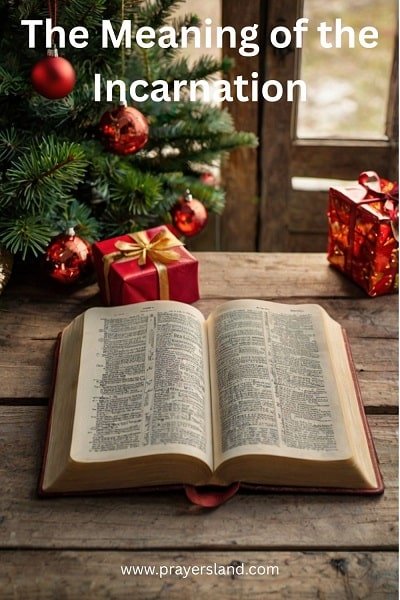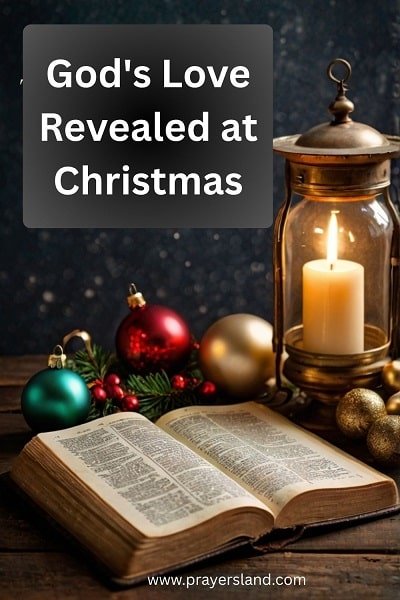Best Bible Verses for Christmas: Scripture to Celebrate the Season are more than just words they’re the heart of what makes this time of year truly magical. As you gather with loved ones, decorate your home, and reflect on the meaning of the season, let these powerful verses bring peace, joy, and deeper connection to your celebrations.
You don’t have to search far for inspiration this carefully chosen list will guide you through the most uplifting and hope-filled scriptures perfect for Christmas. Whether you’re reading alone or sharing with family, these verses will warm your heart and brighten your spirit.
The Prophecy and Promise of Christmas

The Christmas story didn’t begin in Bethlehem but was foretold centuries before through prophetic writings that pointed to the coming Messiah. These verses remind us of God’s faithful promise and the anticipation that preceded Christ’s birth.
1. Isaiah 9:6
“For to us a child is born, to us a son is given, and the government will be on his shoulders. And he will be called Wonderful Counselor, Mighty God, Everlasting Father, Prince of Peace.”
This prophetic verse written approximately 700 years before Christ’s birth reveals the divine nature of the coming Messiah. The titles given to this promised child Wonderful Counselor, Mighty God, Everlasting Father, Prince of Peace—speak to the comprehensive redemption He would bring, addressing our need for guidance, power, care, and harmony. During Christmas, this verse invites us to reflect on how Jesus fulfills each of these roles in our lives today.
2. Micah 5:2
“But you, Bethlehem Ephrathah, though you are small among the clans of Judah, out of you will come for me one who will be ruler over Israel, whose origins are from of old, from ancient times.”
This remarkable prophecy specified the exact birthplace of the Messiah the small, seemingly insignificant town of Bethlehem. The verse reminds us that God often works through the humble and overlooked, bringing extraordinary outcomes from ordinary beginnings. As you seek hope and healing in Scripture, remember that God’s greatest works often come in unexpected packages and places.
3. Isaiah 7:14
“Therefore the Lord himself will give you a sign: The virgin will conceive and give birth to a son, and will call him Immanuel.”
This prophecy foretold the miraculous virgin birth and revealed the profound name “Immanuel,” which means “God with us.” The Christmas story is fundamentally about God choosing to be present with humanity in the most intimate way possible—by becoming one of us. This verse challenges us to recognize God’s presence in our daily lives and to invite that presence into our Christmas celebrations.
The Nativity Story in Scripture

The gospel accounts provide the historical details of Jesus’ birth, painting a vivid picture of that first Christmas night and the remarkable circumstances surrounding it.
4. Luke 2:10-11
“But the angel said to them, ‘Do not be afraid. I bring you good news that will cause great joy for all the people. Today in the town of David a Savior has been born to you; he is the Messiah, the Lord.'”
The angel’s announcement to the shepherds captures the essence of Christmas good news bringing great joy for everyone. In a world often filled with discouraging headlines, Christmas reminds us that the ultimate good news has already come. This season, seek ways to be a messenger of this joy to others, perhaps through acts of kindness or by sharing morning prayers with your family that center on gratitude for Christ’s coming.
5. Matthew 1:23
“The virgin will conceive and give birth to a son, and they will call him Immanuel (which means ‘God with us’).”
Matthew directly connects Jesus’ birth to Isaiah’s ancient prophecy, emphasizing the incredible reality that in Christ, God has come to dwell among us. This verse invites us to experience Christmas as a celebration of divine presence rather than merely exchanging presents. Consider creating space for quiet reflection during the busy holiday season to experience God’s presence in tangible ways.
6. Luke 2:13-14
“Suddenly a great company of the heavenly host appeared with the angel, praising God and saying, ‘Glory to God in the highest heaven, and on earth peace to those on whom his favor rests.'”
The magnificent angelic chorus reveals how heaven itself celebrated the birth of Christ. Their words establish the proper response to the Christmas story: glorifying God and seeking the peace He offers. During Christmas gatherings, consider reading this passage before meals to remind everyone of the heavenly perspective on our earthly celebrations.
The Meaning of the Incarnation

These verses explore the deeper theological significance of Christ’s birth God taking on human form to accomplish our salvation.
7. John 1:14
“The Word became flesh and made his dwelling among us. We have seen his glory, the glory of the one and only Son, who came from the Father, full of grace and truth.”
John’s gospel doesn’t include a traditional birth narrative but instead captures the profound mystery of the incarnation the eternal Word of God taking on human form. This verse reminds us that Christmas celebrates not just a birth but the moment when divine glory was wrapped in human vulnerability. As you prepare for Christmas, consider how you might balance celebrating both the humility and glory of Christ’s coming.
8. Galatians 4:4-5
“But when the set time had fully come, God sent his Son, born of a woman, born under the law, to redeem those under the law, that we might receive adoption to sonship.”
Paul explains that Jesus’ birth happened at precisely the right moment in history and for a specific purpose our redemption and adoption into God’s family. When dealing with family tensions during the holidays, this verse reminds us that we have been brought into God’s family through Christ, offering perspective on forgiveness and reconciliation even in difficult relationships.
9. Philippians 2:6-7
“Who, being in very nature God, did not consider equality with God something to be used to his own advantage; rather, he made himself nothing by taking the very nature of a servant, being made in human likeness.”
This powerful passage highlights Christ’s humility in the incarnation willingly setting aside divine privileges to experience human limitation. In a season often marked by excess and indulgence, this scripture challenges us to follow Christ’s example of selfless service. Consider how you might incorporate acts of service into your Christmas traditions, perhaps by volunteering as a family or simplifying gift-giving to focus on meaning rather than material value.
God’s Love Revealed at Christmas

The birth of Christ represents the ultimate expression of God’s love for humanity a theme these verses explore with profound depth.
10. John 3:16
“For God so loved the world that he gave his one and only Son, that whoever believes in him shall not perish but have eternal life.”
Perhaps the most familiar verse in Scripture, John 3:16 distills the Christmas message to its essence: love expressed through sacrificial giving. God’s gift of His Son stands as the template for all meaningful gift-giving. This Christmas, consider discussing with family the most meaningful gifts you’ve received both material and intangible and how they reflect the greater gift celebrated at Christmas.
11. 1 John 4:9-10
“This is how God showed his love among us: He sent his one and only Son into the world that we might live through him. This is love: not that we loved God, but that he loved us and sent his Son as an atoning sacrifice for our sins.”
This verse beautifully articulates that Christmas demonstrates God’s initiative in loving us before we loved Him. The birth of Jesus set in motion God’s plan for our reconciliation and restored relationship. When you feel overwhelmed by holiday expectations, return to this truth that God’s love comes without preconditions, offering patience and peace in stressful situations.
12. Romans 5:8
“But God demonstrates his own love for us in this: While we were still sinners, Christ came for us.”
Paul emphasizes that Christ’s coming wasn’t a response to human worthiness but rather to human need. This Christmas truth frees us from the pressure of perfectionism, reminding us that God’s gifts come by grace, not merit. In a season that can sometimes trigger feelings of inadequacy or harmful comparison, remember that Christmas celebrates God’s unconditional love for imperfect people.
Hope and Joy for the World
These final verses capture the hope, joy, and universal significance that Christmas brings to all humanity.
13. Luke 2:19-20
“But Mary treasured up all these things and pondered them in her heart. The shepherds returned, glorifying and praising God for all the things they had heard and seen, which were just as they had been told.”
This passage contrasts two beautiful responses to the Christmas event: Mary’s quiet contemplation and the shepherds’ exuberant praise. Both represent valid ways of receiving and processing the wonder of Christ’s birth. As you celebrate this Christmas, create opportunities for both reflection and celebration, allowing different personality types in your family to experience the season in meaningful ways.
14. Titus 2:11
“For the grace of God has appeared that offers salvation to all people.”
Paul succinctly declares that in Christ’s birth, God’s grace took on visible form, bringing the gift of salvation within reach of every person. This universal offer of grace gives Christmas its worldwide significance. Consider how your Christmas celebrations might acknowledge this global aspect, perhaps by incorporating traditions from other cultures or supporting international missions that share the Christmas message.
15. Matthew 2:10-11
“When they saw the star, they were overjoyed. On coming to the house, they saw the child with his mother Mary, and they bowed down and worshiped him. Then they opened their treasures and presented him with gifts of gold, frankincense and myrrh.”
The wise men’s journey culminated in worship and giving establishing a pattern for our own Christmas celebrations. Their expensive gifts acknowledged Jesus’ identity as king, deity, and sacrificial offering. This Christmas, consider how you might make worship central to your celebration, perhaps by creating a special time to read the Christmas story before opening gifts or attending a Christmas Eve service as a family.
Conclusion: Embracing the True Spirit of Christmas
These 15 Bible verses contain the authentic heart of Christmas a narrative of divine love, faithfulness, and redemption that continues to transform lives today. By incorporating these scriptures into our celebrations, we anchor ourselves to the spiritual realities that give the season its lasting significance.
In a culture that often reduces Christmas to sentimentality or materialism, these verses remind us that what we celebrate is nothing less than history’s defining moment when eternity entered time, when the Creator joined creation, when hope dawned in human form. The wonder of this truth never diminishes, no matter how many Christmases we celebrate.
As you gather with loved ones this year, may these verses inspire conversations that go beyond surface pleasantries to touch on matters of faith, hope, and love. May they remind you that the first Christmas gift still offers what our hearts most deeply desire: reconciliation with God and the promise of His enduring presence in our lives.
Bonus: Creative Ways to Use Christmas Bible Verses
Looking for practical ways to incorporate these verses into your Christmas celebrations? Consider these ideas:
- Christmas Card Inscriptions: Choose a verse that holds special meaning for your family to include in your Christmas cards, adding a brief personal reflection on why it speaks to you this year. The perfect verse for Christmas cards can make your greetings more meaningful.
- Daily Advent Readings: Select 24 verses (including these 15) to read one each evening of December leading up to Christmas Day, creating a progressive journey through the Christmas narrative.
- Table Centerpieces: Write verses on decorative cards to place on your Christmas dinner table as conversation starters.
- Gift Tags with Meaning: Add Bible verses to gift tags that connect with the recipient or the gift itself.
- Family Scripture Memory: Choose one verse for your family to memorize together during the Christmas season.
- Christmas Morning Reading: Before opening gifts, read the nativity account from Luke 2 as a family tradition.
- Scripture Ornaments: Create or purchase ornaments featuring key Christmas verses to hang on your tree.
- Candlelight Scripture Reading: Hold a special evening where family members take turns reading Christmas passages by candlelight.
- Social Media Sharing: Post a different Christmas verse each day leading up to Christmas, sharing what it means to you personally.
- Prayer Focus: Use these verses as prompts for prayers when opening gatherings or special events during the holiday season.
Frequently Asked Questions
What is the most important Bible verse for Christmas?
While importance is subjective, many Christians consider Luke 2:10-11 (the angel’s announcement to the shepherds) or John 1:14 (the Word becoming flesh) as central to understanding Christmas. These verses capture both the historical event and its theological significance.
How can I explain the meaning of Christmas to children using Bible verses?
For children, start with the narrative portions in Luke 2:1-20, which tell the Christmas story in accessible language. Use Isaiah 9:6 to explain that Jesus came as a special baby who would become our helper, protector, and bringer of peace. Children connect well with the concrete images in the nativity story before understanding the deeper theological concepts.
Are there Bible verses that connect Christmas to Easter?
Yes! Several verses make this connection. Particularly Matthew 1:21, where the angel tells Joseph that Jesus “will save his people from their sins,” pointing to His eventual sacrifice. Also, the wise men’s gift of myrrh (Matthew 2:11) foreshadows Jesus’ death, as myrrh was used in burial preparations.
How can Bible verses help when I’m feeling stressed during the holidays?
Verses like Luke 2:10 (good news of great joy) and Matthew 11:28-30 (Jesus’ invitation to the weary) can provide perspective when holiday stress builds. For those dealing with broken relationships during the season, Scripture offers comfort and wisdom. Remember that the simplicity of the first Christmas a humble birth in difficult circumstances stands in contrast to our often complicated celebrations.
How do I respectfully share Christmas Bible verses with non-Christian friends?
When sharing with non-Christian friends, focus on verses that highlight universal themes like peace, hope, and love. Present them as part of your tradition that brings you meaning, rather than as arguments for belief. Verses like Luke 2:14 (peace on earth) or Isaiah 9:6 (Prince of Peace) resonate across different belief systems while still conveying the essence of the Christmas message.
Can Bible verses help restore the meaning of Christmas when it feels too commercial?
Absolutely! Regular meditation on verses like John 3:16 or Philippians 2:6-7 can reorient your heart toward gratitude and wonder, even amid commercial excess. Consider setting aside time each day for Scripture reading and reflection, creating a spiritual sanctuary within the holiday bustle. Many find that prayers for divine intervention in restoring meaning to their celebrations can be powerful.
Remember that even a small daily dose of Scripture can gradually transform how you experience the entire Christmas season, bringing renewed appreciation for its profound spiritual gifts.

Noah James is the author behind PrayersLand, a blog dedicated to inspiring faith, hope, and spiritual growth. With a deep passion for prayer and devotion, he shares heartfelt reflections, powerful prayers, and uplifting insights to strengthen believers on their spiritual journey. His writings aim to bring comfort, wisdom, and divine connection.

